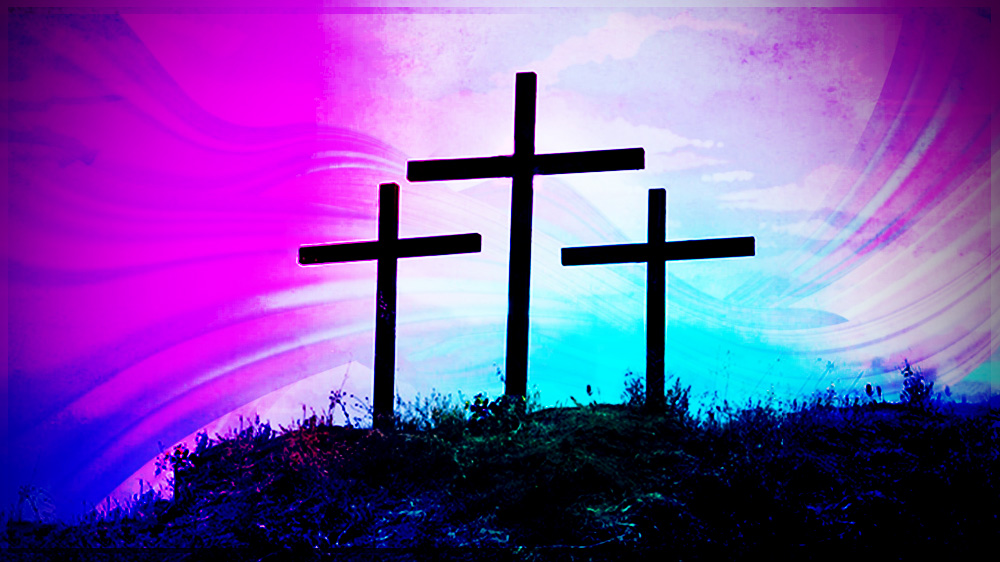
(Maxwell Kuzma)
When I started my gender transition, my goal was not to find a magic pill that would cure all of the difficulties in my life. I knew that I would still face immense challenges, especially in a transphobic society and political climate. But I wanted to have the opportunity to live as myself in a body that felt like home.
For years, I identified as "gender nonconforming." I existed somewhere between the rigid performance of "male" and "female" playing out on the stage of daily life all around me. That middle ground initially felt safe to me because I was deeply uncomfortable with the role I'd been assigned. I took comfort in the gray area. But that gray area was not home.
I was primarily surrounded by conservative Catholics for most of my life, and I knew that coming to identify as transgender would be a very big deal to my community. Queerness, in those circles, was viewed negatively, a cross I must bear.
But the way of the cross is not about secrecy, it is about radical love — of others, yes, but of self, too. Jesus did not hide who he was when the crowds loved him, and he did not hide himself when they turned against him. Queer Catholics deserve the same opportunity to live with the authenticity and truth of their unique selves just like any other Catholic following the path of Jesus.
The movement of the Holy Spirit is never contained by binary thinking; the mystics know this well.
I audited my own behavior for years in order to avoid expressing myself naturally, for fear that it would reveal my LGBTQ identity. This may have made some folks more comfortable, but I wasn't able to genuinely connect with anyone, Catholic or not. Being in the closet may have benefited others around me in avoiding what they might view as an awkward conversation, but it was suffocating me. My personality was buried behind a wall I'd erected to keep the queerness contained.
We all know what it feels like to occasionally behave in ways that don't feel genuine to who we are: The difference is, for queer people, it's what's expected of us the majority of the time.
The pope recently said "gender ideology" is ugly. This phrase views modern scientific understanding as explicitly targeting traditional values without taking into account spiritual revelation. Why must new evidence be experienced as a threat? Why must transgender people just trying to live their lives in the 21st century be labeled an ideology?
The movement of the Holy Spirit is never contained by binary thinking; the mystics know this well — from Meister Eckhart and St. Catherine of Siena in the medieval period, all the way to the likes of Richard Rohr and Ilia Delio today. We believe in a triune God: a trinity of three, not a binary two. This human world we inhabit exists as a manifestation of the divine love of the Trinity which was so powerful that we all came into being. We are a visible sign of that love.
Advertisement
Transgender people make visible an internal reality: We experience a deep knowing of ourselves that becomes embodied when we transition. And for cisgender people as well, living out one's unique vocation to be yourself in the physical world is a brilliant spiritual gift that transcends material reality.
Jesus entered the world through embodiment via the incarnation. Living out his vocation of love led him to death on the cross — not an ending, but rather, through the resurrection, an embodied truth of our eternal souls.
Part of looking deeply at the life of Jesus means looking deeply in the mirror, not scanning for perceived flaws but to see the face of Jesus looking back at us. When we look deeply at the life, death and resurrection of Jesus, we begin to see how these stages are not isolated from each other. There is an ultimate oneness in Jesus' life. Likewise, there is oneness in our life stories as well.
None of us are here on earth by accident. The words of Jeremiah 1:5 apply to all of us: "Before I formed you in the womb I knew you, and before you were born I consecrated you; I appointed you a prophet to the nations."
We all have access to this divine grace and birthright, this opportunity to embody the love we come from. And as we continue to explore this mystery in our own lives, maybe we can learn a thing or two about embodiment from the transgender people among us.








